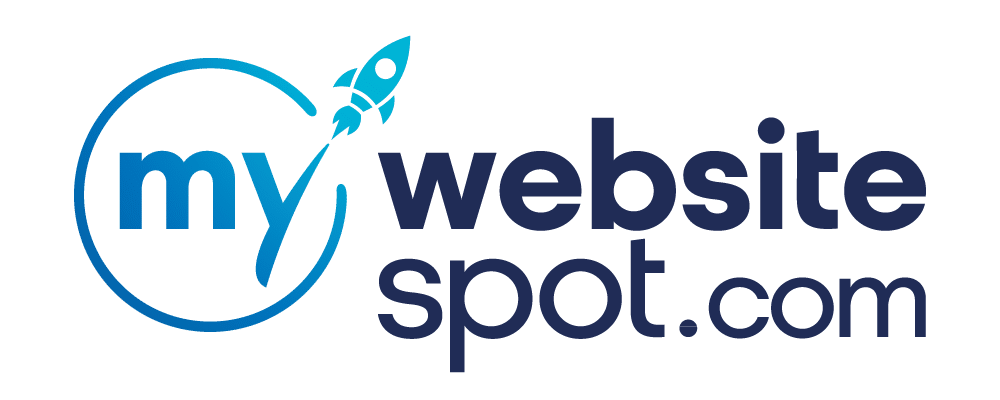Frequently and consistently writing is one of the most important things when it comes to search engine optimization (SEO). Even if you have a unique website, excellent products, exceptional employees, and unbeatable services, you need compelling content to promote your online presence to avoid finding yourself at a standstill.
Creating content allows you to organically dominate keywords, search queries, and ultimately increase your online traffic. Search engine algorithms not only favor valuable and informative content, but they also prioritize consistency. If you want to secure online visibility and claim keyword phrases that are relevant to your business, you need to begin producing valuable content that is optimized for SEO.
How frequently should I post content?
In the current landscape of 2023, both content quality and frequency are crucial considerations. Simply churning out long-form posts without proper research is no longer sufficient. Careful planning and data analysis are essential for achieving higher rankings than competitors who neglect these aspects.
Determining the ideal frequency for posting content depends on various factors, such as the size of your company, target market, and goals. However, to maintain a consistent online presence and maximize your search engine rankings, publishing content several times a week is generally recommended, specifically two to four times.
A study conducted by HubSpot analyzed the content marketing efforts of over 13,000 companies, revealing insightful findings. Brands that published content 16 times a month witnessed 3.5 times more traffic than those that only posted once a week. Similarly, companies with fewer than 10 employees that posted content 11 times a month experienced twice as much traffic and leads compared to similar-sized companies that posted between two and five times a month.
For companies with 11 to 25 employees or over 200 employees, publishing content 11 times a month yielded significant results. They achieved 3.5 times more traffic and 2.5 times more leads than same-sized brands that only published one piece of content a month. Brands with 26 to 200 employees posting 11 blogs per month generated twice as much traffic and 1.75 times as many leads as those with fewer monthly posts.
How to build a schedule around your writing
Creating a consistent writing schedule is essential for writers at all levels. By establishing a schedule, you can ensure that you maintain your commitment to writing. Without a schedule, you may perceive your blog as an optional or non-essential activity, leading to inconsistent publishing.
A blog schedule lets you plan your content in advance, allowing you to prepare timely and seasonally appropriate posts. This proactive approach ensures that your blog remains relevant and engaging for your audience.
Small blogs aiming to increase organic traffic should consider posting 3-4 times per week. This frequency helps to attract more visitors through SEO and increases the likelihood of ranking higher in search results. If your primary goal is to build brand awareness, posting 1-2 times per week can still be effective in maintaining a consistent presence and engaging your audience.
Creating an effective research, writing, and posting schedule becomes essential with so many articles to write. While each writer has their preferences, we recommend the following as a place to start.

Begin your topic research well in advance
Research serves as your initial significant time investment for your writing. Numerous tools, applications, and websites exist to keep you informed about the latest developments in your industry (we will address these in more detail below). Trends, research findings, and data are continually evolving. Organizing them into a schedule based on urgency, such as “immediate” for breaking news and “update” for fresh research on subjects you’ve already explored, will help you effectively prioritize your writing tasks.
Part of your research should include:
- Keywords – whether singular or long-tail- should be industry and brand specific to reach your target audience.
- FAQs about your topic – these can be found in your customer reviews, forums like Reddit or Quora, and Google’s “People also ask” or “Related Searches” sections.
- Missing information – your competitors may miss key bits of information that you can capitalize on. Identify these areas and set yourself apart by providing comprehensive content on what’s missing and why it’s important.
Create an outline
An outline should take an hour at maximum as you have already invested a fair amount of time researching your topic. Common outlines include bulleted lists and spiderweb diagrams that identify your keywords, FAQs, audience objections, and the benefits of the information you provide.
Set a daily word count goal
Establishing a daily word count target can serve as a powerful motivator for making progress in your writing. Determine the desired length of your article and divide your outline into manageable sections that balance your writing capacity and your audience’s reading experience. Sections that are too brief might lack the desired impact, while overly lengthy sections risk losing your audience’s interest.
Have a plan for writer’s block
Staring at a computer screen, completely lost for words, is a struggle every writer faces. Sometimes repeatedly on the same article. Create strategies to overcome and navigate these inevitable obstacles in your writing process. You can prepare a collection of daily writing prompts or engage in stream-of-consciousness freewriting to spark your creativity. Utilize this time creatively, as you may discover that your freewriting exercises can be integrated into your article or that the cause of your writer’s block can be an unexpected source of inspiration. Proactively addressing writer’s block can transform it into a productive opportunity for generating fresh ideas.

Don’t delay. Start right now!
The phrase “I’ll start tomorrow” is your greatest adversary. By commencing your writing now, you will quickly rediscover the initial reasons that fueled your desire to write. While facing a blank page may seem daunting, as you achieve certain milestones, such as publishing your very first article, a sense of accomplishment will propel you forward.
To maintain motivation, establish both significant and minor milestones. Holding yourself accountable to daily word counts will ensure progress toward your goals. At the same time, weekly publishing will enhance your expertise, authority, and trust among your audience. You will gradually complete your first article, story, or blog post as you find your unique writing rhythm. The satisfaction of accomplishing one finished project will be an encouraging catalyst for your subsequent endeavors.
How to get alerts on industry news to inspire your writing
- Google Alerts
- Google Trends
- FrontPageMetrics
- Feedly
Google Alerts
Google Alerts is an invaluable tool for effortlessly staying up-to-date with the latest ideas and information online. By simply entering a few saved searches, you can establish an automated system that delivers updates and news specifically tailored to your niche. When configuring Google Alerts, you input relevant keywords related to your website and instruct Google to monitor discussions and mentions of those topics across the vast expanse of the internet. This way, you can effortlessly keep an eye on who’s talking about your chosen subjects, enabling you to stay informed, engaged, and inspired by the ongoing conversations within your industry.
The results you receive through Google Alerts encompass a wide range of content types, including blogs, news articles, videos, discussions, and books. To refine your search, you can specify that you only want to receive the “best results,” filtering out less relevant content. It’s important to remember that Google Alerts notifies you about new mentions rather than historical ones. If you’re interested in exploring past references, you’ll need to conduct a regular search on Google.
Google Trends
Utilizing Google Trends can be a game-changer in staying informed about the latest industry topics. This tool identifies trending search queries specific to your field, allowing you to tap into the pulse of what’s currently capturing people’s attention. Google Trends tracks global search trends and offers a comprehensive range of data that can be customized based on date range, geographic location, category, search type (such as web search or YouTube), and more.
Google Trends integrates with Google Search, which further enhances its functionality. This integration means you can seamlessly access trending topics and search insights directly from your regular Google searches. By utilizing Google Trends, you gain valuable insights into what people are actively seeking information about, enabling you to align your content strategy with your audience’s current interests and demands. Whether you want to uncover emerging trends, explore regional variances, or discover popular search queries, Google Trends provides information to inform and inspire your writing.
Feedly
Feedly is a tool for effortlessly accessing the latest stories and staying informed about trending topics within your industry. Once you have determined the key publications or news sources that your target audience follows, Feedly becomes your go-to platform for aggregating these sources in one convenient location.
With a paid subscription, you can expand your sources beyond traditional publications, including newsletters, Twitter feeds, or Google News feeds. This broadens your access to diverse and relevant content streams. Feedly’s AI-powered bot actively scours the web for specific topics of interest to deliver targeted updates.
Writing isn’t a limited format
Writing is not confined to a single format; it can be repurposed in various ways to maximize its impact and return on investment. Content leverage is utilizing each piece of content in multiple ways to ensure it reaches and engages the target audience effectively. You need to explore new interactive channels and methods to deliver your content and capture the attention of buyers.
Writing is not confined to a single format; it can be repurposed in various ways to maximize its impact and return on investment. Content leverage is utilizing each piece of content in multiple ways to ensure it reaches and engages the target audience effectively. You need to explore new interactive channels and methods to deliver your content and capture the attention of buyers.
It’s crucial to utilize appropriate social channels for content sharing to reach specific target audiences effectively. For example, videos can be shared on platforms like YouTube, while SlideShare can be utilized for presentations and PDFs. By tailoring your content to fit each social channel’s unique features and strengths, you can ensure your message reaches the right audience in the most impactful and engaging manner.

Boost your online visibility
The importance of consistently writing cannot be overstated. It is the lifeblood of effective communication, brand building, and audience engagement. By consistently producing high-quality content, you establish yourself as an authority in your industry, attract and retain a loyal audience, and boost your online visibility.
However, managing the demands of content creation and SEO can be overwhelming.
That’s where My Website Spot comes in. Our team of skilled content writers and SEO experts is ready to help you create compelling content, optimize it for search engines, and drive organic traffic to your website. Contact My Website Spot today and let us take your content strategy to new heights, ensuring your message is heard loud and clear in the digital landscape.

